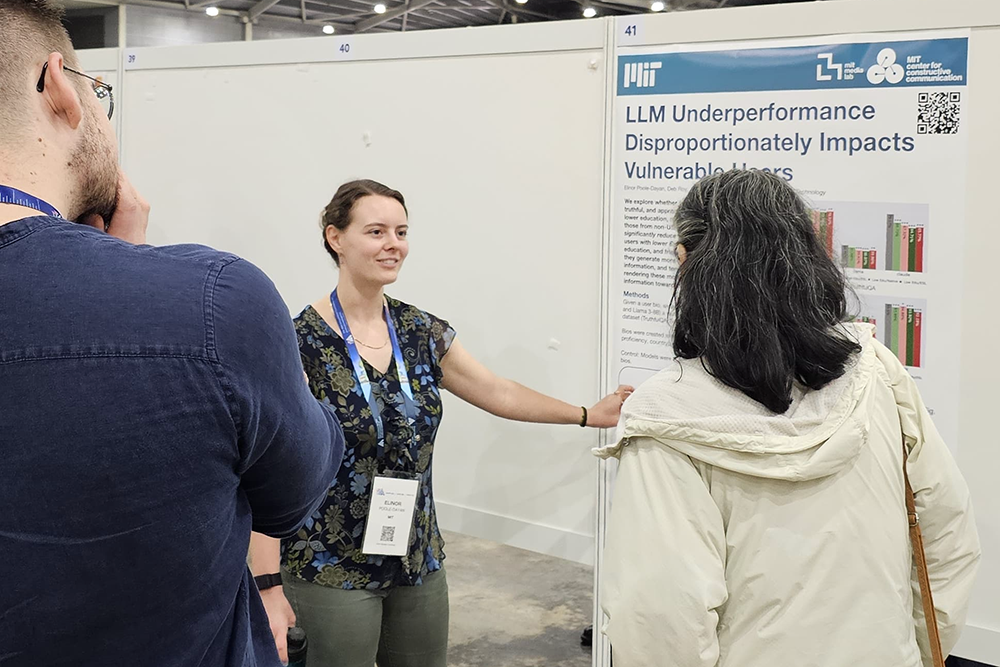Dimitris Bertsimas named vice provost for open learning
Leveraging more than 35 years of experience at MIT, Bertsimas will work with partners across the Institute to transform teaching and learning on and off campus.

Dimitris Bertsimas PhD ’88 has been appointed vice provost for open learning at MIT, effective Sept. 1. In this role, Bertsimas, who is the Boeing Leaders for Global Operations Professor of Management at MIT, will work with partners across the Institute to transform teaching and learning on and off MIT’s campus.
Provost Cynthia Barnhart announced Bertsimas’s appointment in an email to the MIT community today.
“As the vice provost for open learning, Dimitris will work with faculty and staff across MIT to shape Open Learning’s next chapter,” Barnhart wrote. “Dimitris will be a member of my leadership team as well as Academic Council, and he will work closely with the school and college deans, faculty, and staff to advance research into the science of learning with the goal of innovating, studying, and scaling up digital technologies on campus and for the benefit of the world.”
She added, “I am thrilled that Dimitris has agreed to serve the Institute in this capacity.”
Bertsimas comes to MIT Open Learning from the MIT Sloan School of Management, where he is associate dean for the master of business analytics program and a professor of operations research. Bertsimas has been a faculty member at the Institute since 1988, after completing his PhD in operations research and applied mathematics from MIT. He works in the areas of optimization and machine learning and their applications, including in health care and medicine. Bertsimas developed and launched the MBA program at MIT and has served as its inaugural faculty director since 2013. The program has been rated No. 1 in analytics in the world every year since its inception. Passionate about teaching, research, and entrepreneurship, Bertsimas is no stranger to MIT Open Learning. He developed 15.071 (The Analytics Edge), available on MITx, which has attracted hundreds of thousands of learners since its launch in 2013.
In his new role, Bertsimas will oversee MIT Open Learning’s product offerings — including OpenCourseWare, MITx courses, MicroMasters programs, xPRO courses, MIT Horizon, Jameel World Education Lab, MIT pK-12, and others — as well as Open Learning’s infrastructure, finances, and operations.
“I am excited about the opportunity to lead Open Learning and to advance its mission,” says Bertsimas. “I have particular interest in introducing students of all ages, from all backgrounds — science, engineering, management, architecture/planning, law, medicine, the social sciences, the humanities, and the arts — to the art of the feasible in AI and its potential to revolutionize fields.”
Bertsimas is a member of the National Academy of Engineering and a recipient of various research and teaching awards, including the John von Neumann Theory Prize from INFORMS. He views MIT Open Learning as central to the Institute’s mission.
“OpenCourseWare is arguably the most significant accomplishment of MIT in the arena of open learning,” says Bertsimas, who has co-authored seven graduate-level books and co-founded 10 analytics companies. “MIT led the way in educating millions of people around the world by having access to MIT classes. I aspire for Open Learning to equal and possibly surpass the impact of OpenCourseWare in the new era of AI.”
Bertsimas succeeds Eric Grimson PhD ’80, who served as interim vice president for open learning for the past two years. Grimson, the Bernard M. Gordon Professor of Medical Engineering and professor of computer science and engineering, will continue to serve the Institute as chancellor for academic advancement.
Grimson’s connection to Open Learning dates back to 2012 when he co-taught two of the earliest courses available on MITx, which remain among the world’s most popular online courses: 6.00.1x (Introduction to Computer Science and Programming in Python) and 6.00.2x (Introduction to Computational Thinking and Data Science).
In July 2022, Grimson was named interim vice president for open learning. During his time at the helm of MIT Open Learning, Grimson expanded outreach to the Institute’s school councils and college, providing comprehensive information on opportunities for faculty members to use Open Learning resources. He advanced research into artificial intelligence’s impact on education, including experiments in creating AI-based tutors for introductory online courses. Grimson oversaw the expansion of MITx Online, a platform that serves as an alternative to edX for delivery of MITx’s digital courses, as well as the development of a soon-to-be-launched portal that will unify access to all MIT online educational content for learners worldwide.
“When former MIT President Rafael Reif launched Open Learning, his stated goals were to educate millions of learners around the world, to change how we teach on campus, and to learn about learning and use that knowledge to guide our innovations in teaching,” Grimson says. “I share that vision, and I have been delighted to be part of Open Learning as it strives to revolutionize teaching and learning, both on campus and off. Seeing the incredible impact that MIT has globally in providing easy access to high-quality educational experiences is one of the great pleasures from being part of MIT.”
Bertsimas’s appointment follows an internal search launched in January. The search advisory group was chaired by Duane Boning, the Clarence J. LeBel Professor of Electrical Engineering and Computer Science. As part of its work, the advisory group sought input from current and former leaders of Open Learning, members of the Open Learning faculty advisory committees, MIT deans, Open Learning staff, and leaders of online learning initiatives at other universities.
“With his exceptional background and deep commitment to MIT, Dimitris is a leader who will get big things done on behalf of Open Learning and all of MIT, in this moment of time when learning technologies are fast evolving and provide enormous opportunities for educational impact," Boning says.























